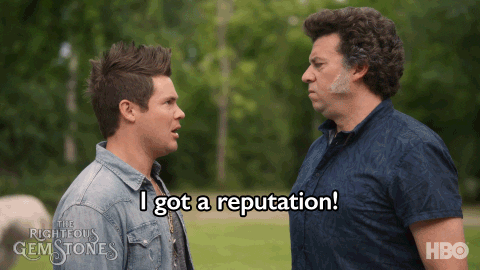When my wife and I chat with a new parent at the playground, we Google them afterwards. By the time we see them again, we usually know a bunch of details about their life. We don’t bring them up. And often you find out a lot more than you bargained for. We’re terrible people. Or we’ve watched too many episodes of Homeland. Or hypervigilance combines with the social life of early parenthood to make us a tad too curious. Whatever the reasons, it is a modern thing, this. I call it the “Google Gap.” And it can work for you or against you. Never mind that it’s depressing how little mystery there is about people these days. The process of meeting someone to knowing their deepest secrets has sped up. How can you use the Google Gap to your advantage, and what are the risks?
What are you known for?
Thanks to remote work, the way people often meet with me first is by booking time through my website. Then the Google Gap closes the opportunity to even make a fresh first impression. I ask people to give me a few words about why they want to chat. If they do, sometimes I’ll take it on face value. But I used to be an investigative reporter and I’m building a business. It would be foolish to go into a prospective client conversation without preparing. As a result, I’ll know the things about you that come up first. That’s before we’ve talked. Have you Googled yourself lately? What came up? Did you check out your organization’s reviews on Glassdoor? Now imagine you’re meeting with a funder or a would-be client. What are they going to read about you?
How can you make sure your value comes up first online?
There are a bunch of guys named “Matt Davis” in the world, and none of them have done anything terrible. But I come up top when you Google my name and “PR”. Or “Communications.” Or if you Google my full name, “Matthew Charles Davis”, as it appears on my business cards with my cellphone number. And I’m careful to post regular content that emphasizes the things I do for my clients. That’s how you keep yourself up in the search engines. If somebody asks themselves for a writer in New York, I’ll feature. Especially if you add in the words “nonprofit” or “causes”. And that’s a good thing. But it requires constant management. It’s like brushing your teeth or weeding a garden. You’ve got to hold the line.
The role of PR in reputation management
One of the best things I did for my SEO was get married. That’s not why we did it, of course. But our New York Times Vows column comes up high whenever you look for me. It’s a piece of PR for my business as a “strategic communications consultant in New York.” And the Times has the best SEO value. Meanwhile, I was Googling Bobbie’s infant formula today. The short version is, I was curious about how they’re doing since we stopped using it to feed our son, Freddy. I also heard about BobbieForChange.org, their “from milk to movement” arm. And I came across a story about how the FDA recalled the milk back in 2019. For a while, the recall was a prominent story if you searched. They moved too fast to “disrupt” the established formula space, and the FDA recalled a bunch of their milk. What I realized they did is hire a PR consultant. Then they went out and spoke about what happened. They “survived the FDA recall and crackdown“. And you have to dig a lot deeper, now, to find the original stories about the recall. And when you Google the organization’s co-founder and CEO, Laura Modi, it doesn’t show up on the first page. Instead, there’s a slew of articles about “how to build a cult-like brand.” Ms. Modi is “breaking the stigma” of formula feeding. And so on. So, by investing in strategic communications and public relations, Ms. Modi and her colleagues have widened the Google Gap for people looking for any bad news. And credit to them. After all, it’s only been a few years and a story like that could easily sink a less resilient company. Now I see they are lobbying for legislation that is good for equity around motherhood. That’s a good thing.
The broader point is, it’s worth sitting down and thinking about what you want to show up when people Google you. If there have been some challenges along the way, then all the better. Placing stories in the media that get to the heart of what you want to be about in the future is a good way forward. Meantime, mind the Google Gap. And I guess, try not to bump into me at the playground?


